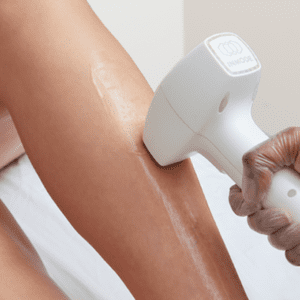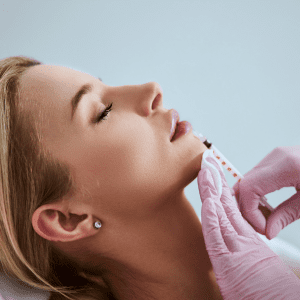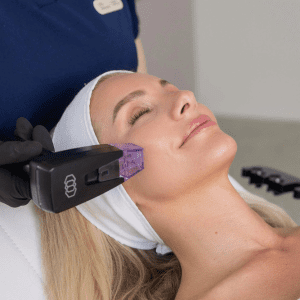
ALOPECIA AREATA
Your body’s immune system mistakenly attacks healthy hair follicles, leading to a long-term autoimmune condition known as alopecia areata. The outcome? Hair loss occurs unexpectedly in random areas and primarily targets scalp hair, although it may occasionally affect the beard along with eyebrows or body hair. Hair loss from this condition does not produce pain, but it creates substantial emotional distress for those affected.
Hair experts at Rasa Derm understand that every person experiences hair loss differently. Our team delivers advanced dermatologist-led treatments for alopecia areata patients based on their condition pattern, severity, and current stage.
What Causes Alopecia Areata
Hair follicles suffer an autoimmune disorder named alopecia areata, which results in sudden uncontrolled hair loss throughout the scalp and potentially other body regions. The majority of cases develop due to genetic factors, yet various environmental elements, lifestyle factors, and medical factors contribute to this condition.
People born with an inherited susceptibility to autoimmune diseases and skin conditions tend to develop an overactive immune response.
Unpredictable hair loss episodes result from the immune system shock triggered by illness or trauma or loss.
The flu and COVID-19, together with other viral infections, can activate your immune system to produce autoimmunity that damages hair follicles.
The presence of atopic diseases like asthma or eczema leads to higher chances of developing alopecia because it indicates a hyperactive immune response in these patients.
The functioning of hair growth cycles becomes disrupted when thyroid hormones and cortisol levels and sex hormones create immunologically driven inflammation within follicles.
A deficiency of vitamin D and iron damages hair structure and weakens immune function, thereby making follicles more susceptible to immune system attacks.
The breakdown of communication between the immune and integumentary systems (skin) together with chronic inflammation occurs when the gut remains unhealthy for a long period.
The combination of processed food diets with irregular sleep patterns weakens the immune system while creating hormone imbalances and systemic inflammation throughout the body.
Progress And Things To Watch Out For
- The first sign of this condition includes one or more small round bald spots with smooth skin.
- Under specific conditions hair can regrow before disappearing again.
- The occurrence of alopecia totalis (complete scalp loss) and universalis (full-body loss) represents the less common severe forms of the disease.
Early diagnosis impacts how your hair responds to treatment. We recommend consulting our dermatologists at the initial sign of symptoms because this is crucial for effective treatment.
Our approach combines clinical precision with personalized care to reduce inflammation, promote regrowth, and support long-term hair health.

Intralesional Steroid Injections
- Session Duration: 15–20 minutes
- Sessions Required: 3–6 sessions
- Gaps Between Sessions: 3–4 weeks
- Results:Patch regrowth, Reduced inflammation
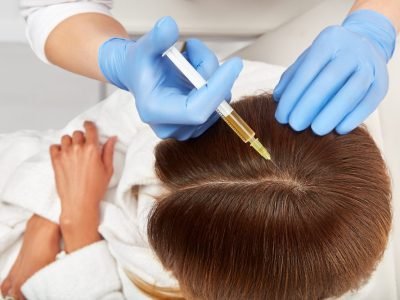
Hair Growth Factor Therapy (GFC / PRP)
- Session Duration: 45–60 minutes
- Sessions Required: 4–6 sessions
- Gaps Between Sessions: Every 4 weeks
- Results In : Strengthened roots, New hair
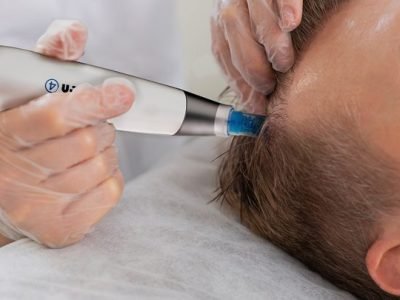
Microneedling with Growth Serums
- Session Duration: 45 minutes
- Sessions Required: 4–5 sessions
- Gaps Between Sessions: 3–4 weeks
- Results In : Improved density, Smoother scalp
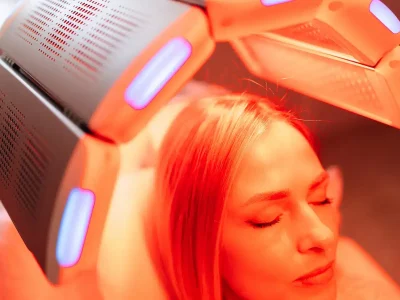
Advanced Laser Hair Stimulation
- Session Duration: 20–30 minutes
- Sessions Required: 8–10 sessions
- Gaps Between Sessions: 1–2 weeks
- Results In : Stimulated follicles, Healthier regrowth
Our dermatologists at Rasa Derm conduct a comprehensive scalp analysis, evaluate medical history, lifestyle triggers, and offer tailored treatment plans for both men and women.
Because Alopecia Areata has a relapsing nature, ongoing maintenance and care are essential. We’ll guide you through that process—every step of the way.




